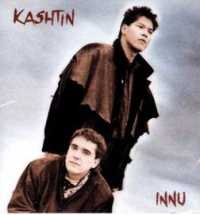Kashtin were a Canadian folk rock duo in the 1980s and 1990s, one of Canada’s most famous First Nations musical groups.
The band was formed in 1984 by Claude McKenzie and Florent Vollant, two Innu from the Maliotenam reserve in northern Quebec. The name Kashtin means “tornado on the horizon” in the Innu-aimun language, but was also chosen as a pun on the English language phrase “cashed in”, in response to friends who alleged that the band was selling out.[citation needed]
The band quickly became popular in the region, and in 1988 they were featured in a documentary on the Innu for a Quebec television station. They were soon brought to Montreal to record, and released their self-titled debut album in 1989.
Although that album was recorded in their native language, spoken by just 12,000 people in the world, the album quickly became a major hit in Quebec, and soon in English Canada as well, eventually being certified double platinum. The singles “E Uassiuian” and “Tshinanu” were popular hits for the band.
In 1990, the band toured Europe and made commercial breakthroughs there, most notably becoming Top 10 stars in France.
In 1991, the band released their second album, Innu. That album spawned the band’s biggest Canadian hit single, “Ishkuess”.
For their third album, 1994’s Akua Tuta, Kashtin signed with Columbia Records. Robbie Robertson included the title track from that album on his album Music for The Native Americans. Their songs also appeared on the soundtracks to the film Dance Me Outside and the television shows Northern Exposure and Due South.
Following Akua Tuta, the two members of Kashtin each began recording as solo artists. They have not released another album as Kashtin, although they have continued to perform occasional live shows together.
